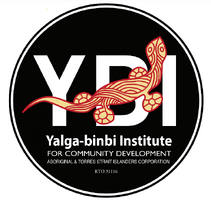SPECIAL MARITIME TRAINING CALENDAR
Mentor in the workplace
Qualification Code TAEDEL414
AU$350.00
TAEDEL414 - Mentor in the workplace (Release 1)
Save this product for later
Mentor in the workplace
Product Details
Modification History
|
Release |
Comments |
|
Release 1 |
This version first released with TAE Training and Education Training Package Version 5.0. Supersedes and is equivalent to TAEDEL404 Mentor in the workplace. |
Application
This unit describes the skills and knowledge required to establish and develop a professional mentoring relationship with an individual in a workplace. It includes the skills and knowledge to plan and prepare for the mentoring, and implement strategies suited to the mentee, the workplace and the mentoring relationship.
The unit applies to workplace supervisors or other work colleagues who work under limited supervision and have responsibility for mentoring individuals in the workplace. This may include, but is not limited to, those who mentor an apprentice or trainee employed by, or undertaking a work placement within, an organisation.
No licensing, legislative or certification requirements apply to this unit at the time of publication.
Unit Sector
Delivery and facilitation
Elements and Performance Criteria
|
ELEMENTS |
PERFORMANCE CRITERIA |
|
Elements describe the essential outcomes. |
Performance criteria describe the performance needed to demonstrate achievement of the element. |
|
1. Plan and prepare for mentoring relationship |
1.1 Identify scope and boundaries of the mentoring relationship according to organisational procedures 1.2 Develop and document mentoring plan according to organisational requirements 1.3 Establish ground rules and negotiate realistic expectations with the mentee 1.4 Establish and maintain confidentiality of the mentoring relationship according to legislative requirements and organisational policies and procedures |
|
2. Facilitate mentoring relationship |
2.1 Undertake activities intended to develop mentee’s confidence and trust in the mentoring relationship 2.2 Share personal experiences and knowledge with mentee according to agreed objectives 2.3 Support mentee to develop and use skills in problem solving and decision making 2.4 Use personal and professional networks to assist the mentee 2.5 Provide information, and guidance to enhance engagement in the workplace 2.6 Use techniques for resolving differences without damaging the mentoring relationship, and obtain assistance according to organisational procedures |
|
3. Monitor mentoring relationship |
3.1 Provide planning assistance and guidance as requested by the mentee in a form and style to suit their requirements 3.2 Provide feedback to the mentee on progress towards achieving the expectations and goals of the mentoring process 3.3 Recognise and discuss changes in the mentoring relationship with stakeholders 3.4 Negotiate and manage closure of the mentoring arrangement |
|
4. Review mentoring |
4.1 Establish and discuss benefits gained from the mentoring process 4.2 Reflect on and articulate the personal benefits gained from providing mentoring 4.3 Identify and report the outcomes of the mentoring arrangement and the benefits to the organisation according to organisational procedures to improve the mentoring system or program |
Foundation Skills
This section describes those language, literacy, numeracy and employment skills that are essential to performance but not explicit in the performance criteria.
|
Skill |
Description |
|
Digital literacy |
|
|
Reading |
|
|
Writing |
|
|
Oral communication |
|
|
Problem solving |
|
|
Self-management |
|
|
Teamwork |
|
Unit Mapping Information
Supersedes and is equivalent to TAEDEL404 Mentor in the workplace.
Links
Companion Volume Implementation Guide is found on VETNet - https://vetnet.gov.au/Pages/TrainingDocs.aspx?q=35337905-785d-4f93-8777-e9991ad4c6c3
Assessment requirements
Modification History
|
Release |
Comments |
|
Release 1 |
This version first released with TAE Training and Education Training Package Version 5.0. Supersedes and is equivalent to TAEDEL404 Mentor in the workplace. |
Performance Evidence
The individual must demonstrate the ability to complete the tasks outlined in the elements, performance criteria and foundation skills of this unit, including evidence of the ability to:
- negotiate and document an agreed mentoring plan with 1 mentee that sets out clear objectives and a timeframe for the mentoring relationship
- facilitate at least 3 mentoring sessions of at least 30 minutes each with 1 mentee.
Knowledge Evidence
The individual must be able to demonstrate knowledge to complete the tasks outlined in the elements, performance criteria and foundation skills of this unit, including knowledge of:
- organisational policies and procedures and codes of practice relating to the provision of workplace mentoring, including:
- equal employment opportunity, equity and diversity responsibilities
- work health and safety (WHS) responsibilities
- key features of a mentoring plan suited to mentee needs and workplace context
- key methods and strategies for working with a mentee, including:
- using active listening and open questions to build rapport
- encouraging self-reflection and confidence
- acceptable behaviour in a mentoring relationship.
Assessment Conditions
Skills in this unit must be demonstrated in a real or simulated workplace environment. Evidence gathered for assessment may include that collected in real time or via a submitted recording.
This includes access to:
- mentoring plan template
- at least 1 mentee.
Assessors of this unit must satisfy the requirements for assessors in applicable vocational education and training legislation, frameworks and/or standards.
Links
Companion Volume Implementation Guide is found on VETNet - https://vetnet.gov.au/Pages/TrainingDocs.aspx?q=35337905-785d-4f93-8777-e9991ad4c6c3
Display prices in:AUD

